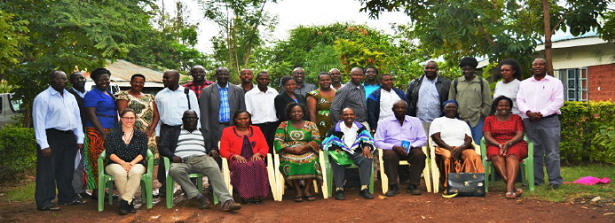Results baseline food and nutrition survey Kisumu

In the frame of the Global Challenges Programme, the “Women Food Entrepreneurs in Kenya and Burkina Faso” project undertook the baseline food and nutrition survey. The results are now available for Kisumu, Kenya. The survey covers two slums, Nyalenda and Obunga, and the results shed light on the quality of daily food and nutrition; the collaborative links between women farmers, the food value chain, and soil and water usage in farming. Moreover, food and nutrition indicators were constructed on the basis of the survey results.
Please download the baseline survey here (PDF).
The total sample for the baseline survey was 120, distributed among three slums areas: Nyalenda (24%), Nyalenda B (60%), and Obunga (16%). The households were selected through systematic random sampling.
Following the FAO methodology, a Household Dietary Diversity Score (HDDS) and a Food Consumption Score (FCS) were computed. On a scale of 1-12, the average HDDS of 7.43 indicates moderately diverse diets, with a lower range of 5 and a higher range of 10. The FCS threshold indicates food poverty when it reaches less than 21.5 and an acceptable status when is larger than 35, on the average FCS is 40. Food production in both slums serves household food and nutrition needs, but also provides a source of income. Almost 40% of the slum populations is undertaking food commercial activities (producing, processing, selling), and 29% is engaged in farming. The survey also shed light on how lifestyle and cultural changes influence the urban food plate in slums. Lack of food hygiene was pointed out as an issue of concern amongst urban slum dwellers.






